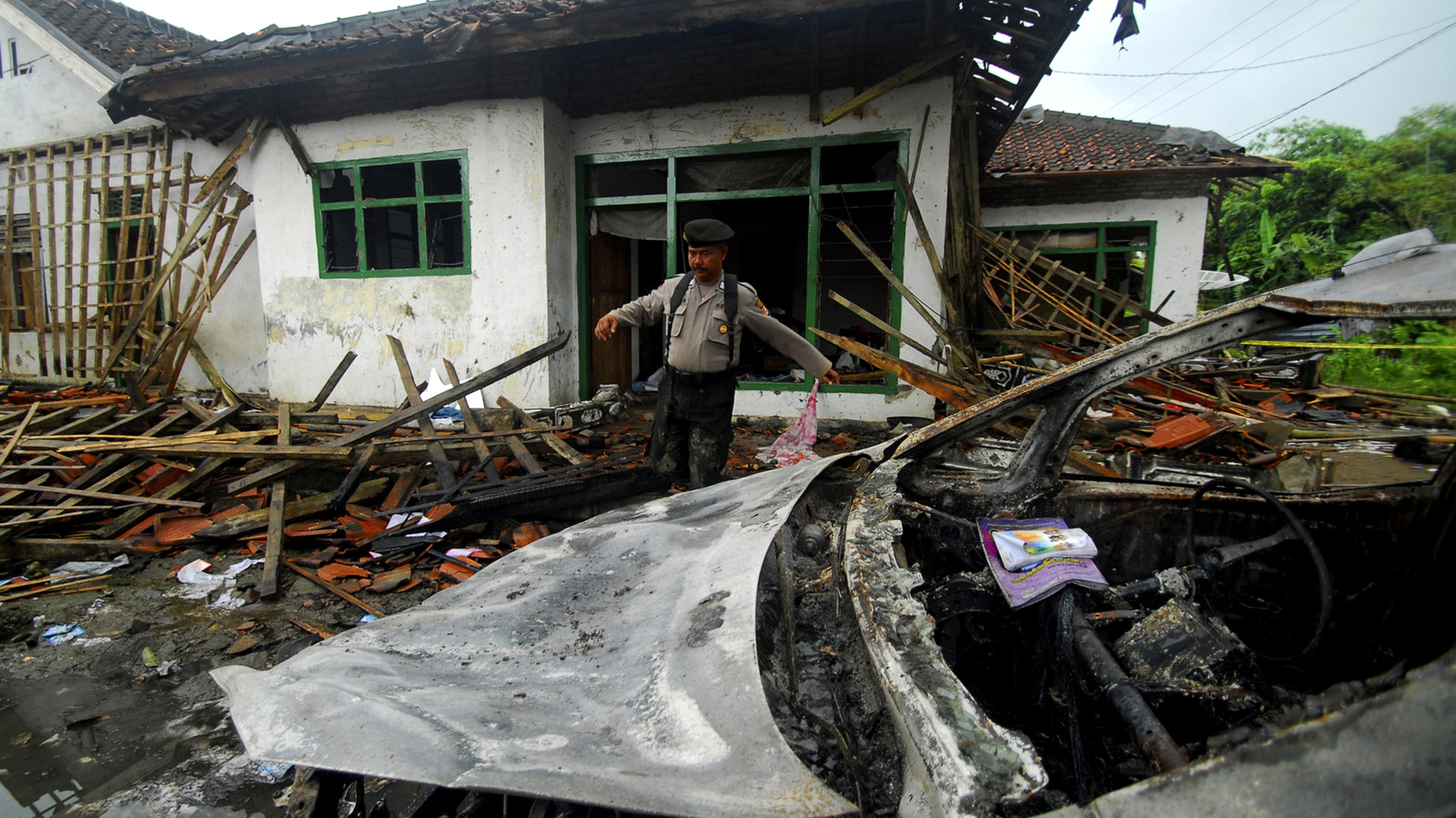
New York – Local Indonesian authorities have banned the activities of the Ahmadiyah religious community in the town of Subang in West Java province, Human Rights Watch said today. The Indonesian government should urgently intervene to stop the harassment and intimidation of the minority group.
On January 29, 2016, Subang district officials and Muslim clerics issued a letter that bans all Ahmadiyah activities in central Subang. The next day, they placed a banner outside the Ahmadiyah mosque stating that it was closed. Neither President Joko “Jokowi” Widodo nor other national officials have spoken out or intervened to lift the ban.
The harassment and intimidation intensified on January 16, when a neighborhood leader, Amir Syaripudin, accused the Ahmadiyah in aletter to the Sukamelang village chief of “blasphemy against Islam” and implied that there could be violence against the Ahmadiyah unless the local government curbed their activities. “We reject a blasphemous activity taking place in our neighborhood,” Syaripudin wrote. “We don’t want our members to lose patience and to use violence if that activity is not banned.”
The Subang district chief, Tatang Supriyatna, responded by convening a meeting on January 29 with the leaders of the Ahmadiyah community and local government and security force officials. Ahmadiyah community leaders told Human Rights Watch that the officials at the meeting pressured the community “to disband” and to convert to Sunni Islam. Later that day, Supriyatna issued the banning order. The following day, Supriyatna had a banner placed outside the Ahmadiyah mosque that says the property is officially “Closed/Banned” and lists the names of the 10 officials and clerics who support the ban.
The harassment and intimidation of the Ahmadiyah in Subang coincides with similarpersecution on Bangka Island, off Sumatra’s east coast. The local government’s threat ofexpulsion prompted the police on February 5 to evacuate the community’s women and children due to fears of violence.
Indonesia’s Ahmadiyah have been under threat since June 2008, when the government of then-President Susilo Bambang Yudhoyono signed a national decree ordering the Ahmadiyah community to “stop spreading interpretations and activities that deviate from the principal teachings of Islam.” Violators are subject to up to five years in prison. Following the decree, militant Islamists carried out several violent attacks against Ahmadiyah including in Cikeusik in February 2011, killing three Ahmadiyah men.
During the 2004-2014 administration of Yudhoyono, militant Islamists with the complicity of local police and government officials forced the closure of more than 30 Ahmadiyah mosques, while other religious minorities including the Shia and some Christian groups were also targets of harassment, intimidation, and violence. The frequency and severity of violent attacks on religious minorities have decreased since Jokowi became president in October 2014, and he has pledged to protect religious minorities and fight religious intolerance.
Indonesia’s constitution in articles 28 and 29 guarantees freedom of religion. Prohibitions on the Ahmadiyah from practicing their religion violates the International Covenant on Civil and Political Rights, ratified by Indonesia in 2006. Article 18 of the covenant protects the right to freedom of religion and to engage in religious practice “either individually or in community with others and in public or private.” Article 27 also protects the rights of minorities “to profess and practice their own religion.”
“Jokowi needs to demonstrate the political will to protect the rights of religious minorities by both taking action against officials who seek to deny those rights and repealing discriminatory legislation, “ Kine said. “Jokowi’s silence is giving free rein to people abusing the Ahmadiyah.”

